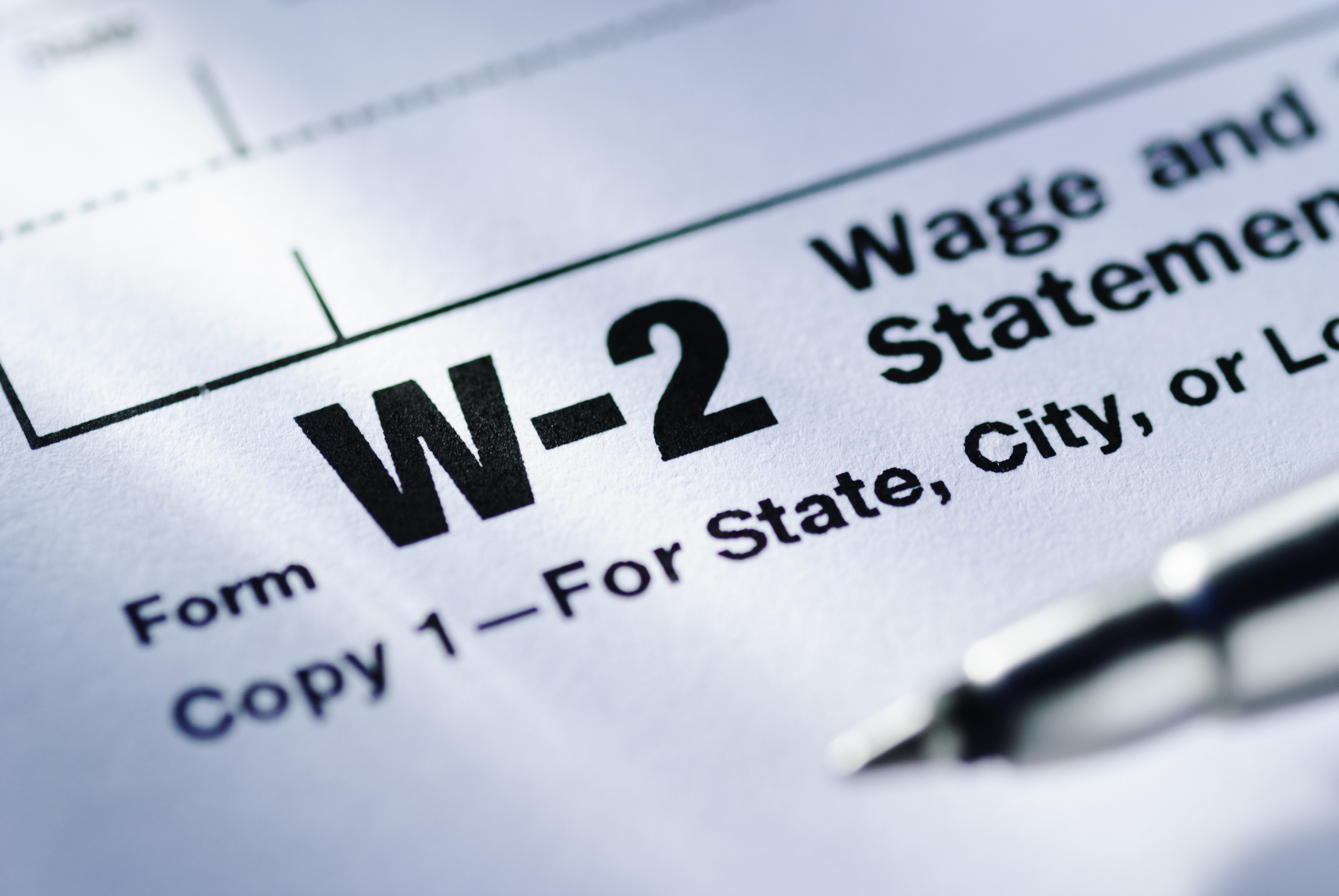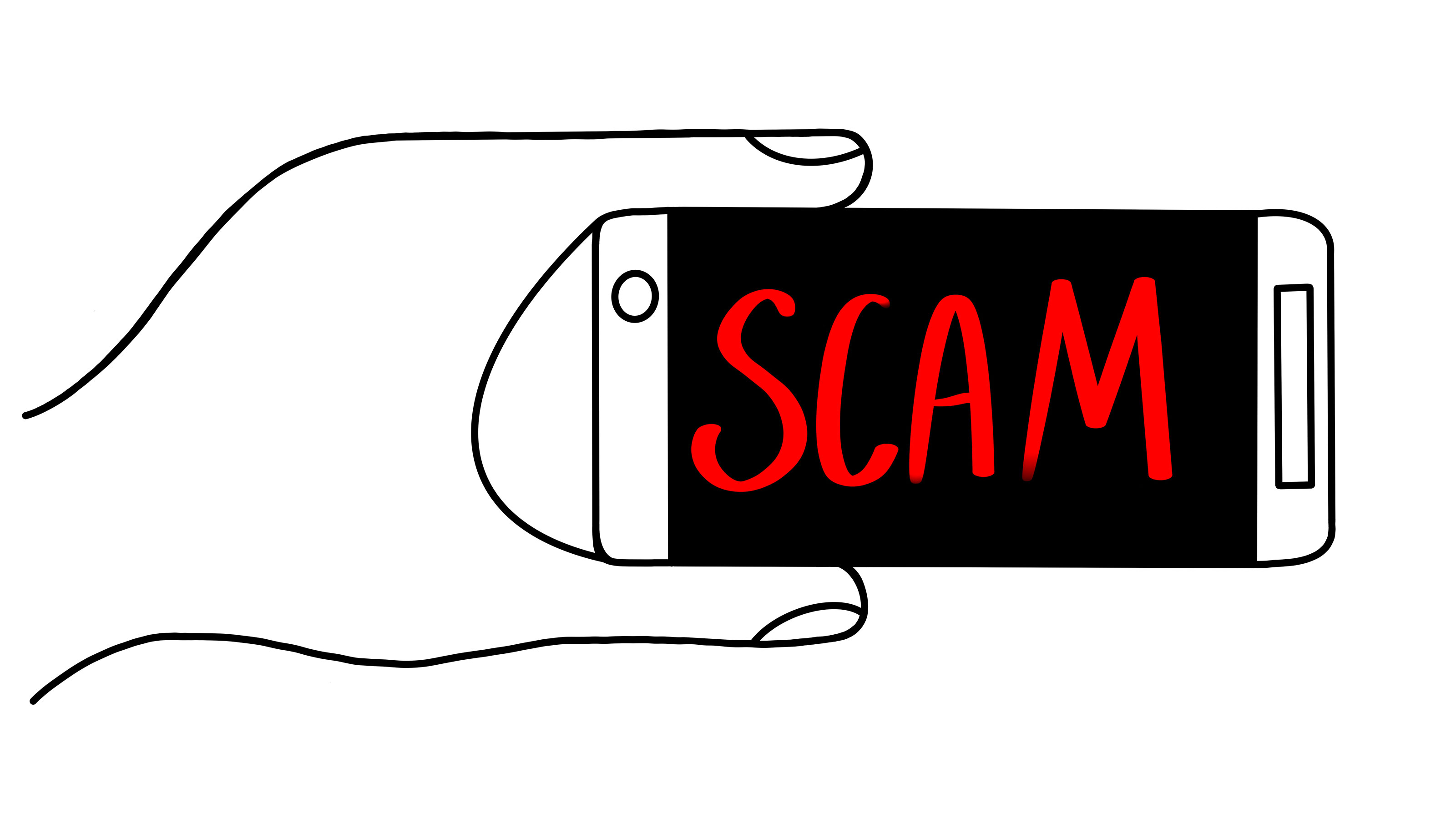How I Dodged a Phony IRS Tax Scam
Here's what I did to avoid becoming a victim when someone called and tried to rip me off.

Profit and prosper with the best of Kiplinger's advice on investing, taxes, retirement, personal finance and much more. Delivered daily. Enter your email in the box and click Sign Me Up.
You are now subscribed
Your newsletter sign-up was successful
Want to add more newsletters?

Delivered daily
Kiplinger Today
Profit and prosper with the best of Kiplinger's advice on investing, taxes, retirement, personal finance and much more delivered daily. Smart money moves start here.

Sent five days a week
Kiplinger A Step Ahead
Get practical help to make better financial decisions in your everyday life, from spending to savings on top deals.

Delivered daily
Kiplinger Closing Bell
Get today's biggest financial and investing headlines delivered to your inbox every day the U.S. stock market is open.

Sent twice a week
Kiplinger Adviser Intel
Financial pros across the country share best practices and fresh tactics to preserve and grow your wealth.

Delivered weekly
Kiplinger Tax Tips
Trim your federal and state tax bills with practical tax-planning and tax-cutting strategies.

Sent twice a week
Kiplinger Retirement Tips
Your twice-a-week guide to planning and enjoying a financially secure and richly rewarding retirement

Sent bimonthly.
Kiplinger Adviser Angle
Insights for advisers, wealth managers and other financial professionals.

Sent twice a week
Kiplinger Investing Weekly
Your twice-a-week roundup of promising stocks, funds, companies and industries you should consider, ones you should avoid, and why.

Sent weekly for six weeks
Kiplinger Invest for Retirement
Your step-by-step six-part series on how to invest for retirement, from devising a successful strategy to exactly which investments to choose.
One morning last week when I answered the phone, a woman at the other end of the line told me she was with the IRS and that I was being investigated. My immediate reaction was panic. But as the caller started telling me why I supposedly was in trouble, I quickly realized that scammers -- not the IRS -- were targeting me.
Before I recount the conversation, let me emphasize that the best course of action to take when a scammer calls is to hang up. Period. I stayed on the line out of professional curiosity. I hoped to gain more insight into the nature of the con that I could share with Kiplinger readers -- and I did. Here's how I recognized the scam.
The woman on the phone told me that a variety of charges were being filed against me for failing to pay taxes and attempting to defraud the IRS. She asked if I had a criminal attorney to represent me. "No," I answered. Then she said I owed $4,000. None of what she was saying added up, but it was easy to see how her accusations and efforts at intimidation could rattle many an unsuspecting taxpayer.
From just $107.88 $24.99 for Kiplinger Personal Finance
Become a smarter, better informed investor. Subscribe from just $107.88 $24.99, plus get up to 4 Special Issues

Sign up for Kiplinger’s Free Newsletters
Profit and prosper with the best of expert advice on investing, taxes, retirement, personal finance and more - straight to your e-mail.
Profit and prosper with the best of expert advice - straight to your e-mail.
I was fortunate because I knew that what the woman was saying sounded familiar to a scam I had written about in November 2013, IRS Warns of a New Phone Scam. The IRS had issued a warning that scammers were calling people, telling them that they owed money and threatening that they would be arrested if they didn't pay. To resolve the issue, victims typically were being told to pay the money owed to the IRS through a pre-loaded debit card or a wire transfer. But the scammer didn't get that far with me.
From past run-of-the-mill dealings with the IRS and articles I've written for Kiplinger, I knew that the IRS initiates contact with taxpayers by mail, not by phone. And I knew that if I truly were being audited, the process would have begun with a letter and that I would've been asked to supply the IRS with records (see What Are the Odd That Your Return Will Be Audited? And What Should You Do if It Is?). I certainly wouldn't be charged with anything before actually having an opportunity to make a case for any questionable items on a tax return.
So I asked the woman if the IRS had attempted to contact me by mail. She said it had. I followed up by asking to what address had letters been sent. She rattled off my former address. When I told her that wasn't my current address and that I had received other correspondence recently from the IRS (tax forms, not audit notifications) at my current address, she hung up.
I felt victorious but realized how easily someone without my knowledge of tax scams could have been duped. Tax fraud often tops the Federal Trade Commission's list of biggest identity-theft complaints. And the IRS sees countless scams meant to trick taxpayers into revealing personal information.
That's why it's important to be aware of tell-tale signs of IRS-related scams:
Callers claiming to be IRS agents. As I mentioned above, the IRS initiates contact with taxpayers by mail, not by phone. If you get a call from someone claiming to be with the IRS, don't reveal any personal information or credit-card information because the IRS doesn't ask for payments over the phone. Instead, hang up and call the IRS at 1-800-829-1040 to see if an agent has a legitimate need to contact you.
Unsolicited e-mails from the IRS. Not only will the IRS not initiate contact with taxpayers by phone, but also it won't use e-mail, text messages or social media. So do not reply to unsolicited e-mails or messages supposedly from the IRS, open any attachments (which could contain viruses) or click on any links (which could take you to a fraudulent Web site). Forward all suspect e-mails to phishing@irs.gov.
For more information about lowering your risk of becoming a victim, see How to Avoid Tax Scams and our Scams Special Report. If scammers have targeted you, we'd like to hear about your experience. Please share it in the comments section below.
Profit and prosper with the best of Kiplinger's advice on investing, taxes, retirement, personal finance and much more. Delivered daily. Enter your email in the box and click Sign Me Up.

Award-winning journalist, speaker, family finance expert, and author of Mom and Dad, We Need to Talk.
Cameron Huddleston wrote the daily "Kip Tips" column for Kiplinger.com. She joined Kiplinger in 2001 after graduating from American University with an MA in economic journalism.
-
 Dow Adds 1,206 Points to Top 50,000: Stock Market Today
Dow Adds 1,206 Points to Top 50,000: Stock Market TodayThe S&P 500 and Nasdaq also had strong finishes to a volatile week, with beaten-down tech stocks outperforming.
-
 Ask the Tax Editor: Federal Income Tax Deductions
Ask the Tax Editor: Federal Income Tax DeductionsAsk the Editor In this week's Ask the Editor Q&A, Joy Taylor answers questions on federal income tax deductions
-
 States With No-Fault Car Insurance Laws (and How No-Fault Car Insurance Works)
States With No-Fault Car Insurance Laws (and How No-Fault Car Insurance Works)A breakdown of the confusing rules around no-fault car insurance in every state where it exists.
-
 Holiday Tax Scams 2025: 'Tis the Season to be Wary
Holiday Tax Scams 2025: 'Tis the Season to be WaryTax Scams Navigating tax tricks of the holiday season may be daunting, but don't let that destroy your festive spirit
-
 How to Guard Against the New Generation of Fraud and Identity Theft
How to Guard Against the New Generation of Fraud and Identity TheftIdentity Theft Fraud and identity theft are getting more sophisticated and harder to spot. Stay ahead of the scammers with our advice.
-
 Tax Scam: IRS Warns Taxpayers Against Filing False W-2 Info
Tax Scam: IRS Warns Taxpayers Against Filing False W-2 InfoScams A new tax scam on social media advises lying on your W-2 to falsely claim credits and bigger refunds.
-
 PODCAST: National Taxpayer Advocate Erin M. Collins Wants to Help
PODCAST: National Taxpayer Advocate Erin M. Collins Wants to HelpFinancial Planning Your tax dollars are at work funding a government bureau to help you deal with the IRS. Strange but true! Also, the price of Amazon is going up.
-
 Con Artists Target People Who Owe The IRS Money
Con Artists Target People Who Owe The IRS MoneyScams In one scheme, thieves will offer to "help" you pay back taxes, only to leave you on the hook for expensive fees in addition to the taxes.
-
 Tax Refund Scam Targets College Students and Staff
Tax Refund Scam Targets College Students and StaffScams The IRS says there's a new phishing scam aimed at people with email addresses ending in ".edu."
-
 PODCAST: Taxes on Retirees — What’s New
PODCAST: Taxes on Retirees — What’s NewBudgeting In this episode of Your Money's Worth, senior tax editor Rocky Mengle talks about the latest update of the Kiplinger Retiree Tax Map. Will states with declining revenues make life harder on retirees? Also, the Biden stimulus plan and the hazards of patent scams.
-
 Watch Out for Stimulus Check Texting Scam
Watch Out for Stimulus Check Texting ScamScams Scammers are sending text messages that trick people into disclosing bank account information to get a $1,200 stimulus check.